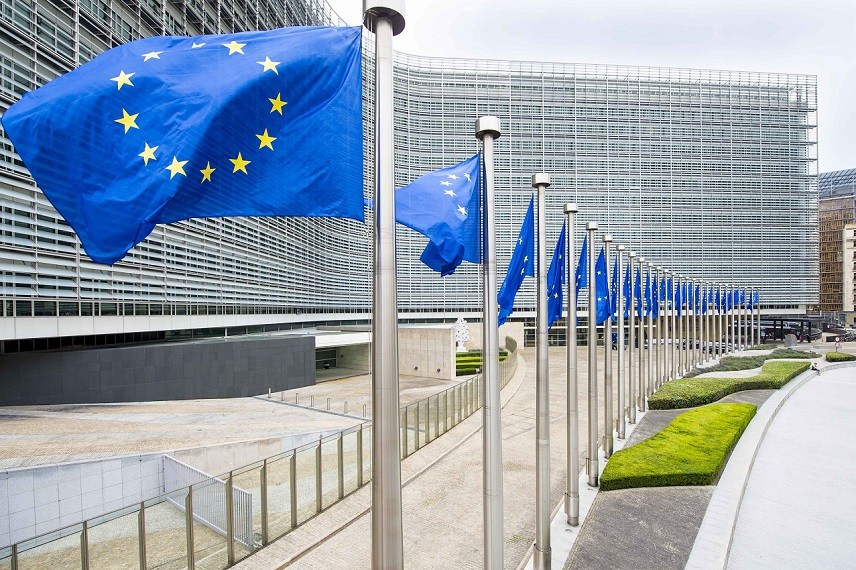Do you remember the precautionary principle? You might recall it. After all it is recognized in EU law and affirmed by the European Court of Justice. But it has become obvious that the European Commission and the Council of Ministers have abandoned it. At least that is the case when it comes to the covid pandemic and return-to-office and vaccination rules for Commission and Council employees.
The same precautionary principle amnesia can be said for the Commission, Council and EU member states insistence that the United States open its borders to EU visitors – a demand reiterated by Industry and Single Market Commissioner Thierry Breton during a visit to Washington on Sept. 21.
Due to continued covid case increases, including among children, in Brussels, where the vaccination rate is hovering around 50 percent, the Brussels regional government backed by the Belgium consultative committee is still calling for employee homeworking. The Brussels covid case surge also triggered an abrupt move by European schools to transition back to distant learning as of Sept. 20.
However the European Commission has decided to ignore the Brussels reality. Instead of giving employees the option of continued teleworking it is insisting on a mandatory once-a-week presence in the office. The same for the Council. Exemptions are only allowed for pregnant women, immune deficient individuals confirmed by a doctor or persons who have undergone chemotherapy during the last three years.
The one-day-a-week office requirement could possibly be reconciled if it included a mandatory vaccination rule for all Commission employees. But vaccination is not mandatory for EU employees. As a result Commission employees including cancer survivors who have been through hell-and-back chemotherapy and radiation treatments beyond the three year limit and live daily with the knowledge that remission is by no means permanent are being forced to return to offices not knowing if their fellow workers are vaccinated.
The European Commission insists these concerns are unwarranted because approximately 90 percent of EU executive body employees are vaccinated. But that assurance is feeble. But what about the other 10 percent who are not? Or the fact that vaccinated individuals are not immune to the virus – especially the Delta variant or other new ones including Beta. Or the fact that persons - vaccinated or not - can spread the virus?
Clearly under these circumstances the precautionary principle would best be employed and office presence should be optional – at the minimum especially for those who have had medical conditions in the past decade. After all that was the policy the Commission and Council abides by when giving priority vaccination status to employees earlier this year.
Rules for visitors to the EU institutions also underline other Commission and Council double standards. To enter either institution's building a visitor must either have a digital covid vaccine certificate or proof of having had covid in the past six months or a negative rapid test result. But those are not the same rules for those working in the building.
Further confounding and complicating the life of Commission and Council employees – at least with those with children in the European schools – is the conflict between having to return to the office once a week while their children are required to home learn.
The vociferous EU demand that began in June calling on the U.S. to open its borders to EU visitors is just as baffling – especially for U.S. government officials. They have been consistently lectured by the Commission for the past three decades about the precautionary principle and how it justifies trade restrictions on a wide range of U.S. food, chemical, biotechnology and other imports in order to protect EU citizen human health and the environment. One U.S. diplomat, frustrated by what she considered an arbitrary and over-protective Commission approach, once told me in an interview that the EU's precautionary principle policy could be summed up as follows: "don't get out of bed in the morning.''
That U.S. diplomat's assessment might have been an exaggeration. But it certainly underlines why the Biden Administration, struggling with a summer covid case surge due to the delta variant that spread from Europe, continually rebuffed the Commission and EU member state pressure. Desperate to avoid the political and sometimes violent social clashes triggered by 2020 lock down rules, the U.S. Center for Disease Control (CDC) insisted there there were more than enough scientific uncertainties to justify the U.S. government's precautionary principle approach.
One of the most important U.S. CDC scientific uncertainties concerned the preponderance of EU citizens or residents vaccinated with the AZ jab. The U.S. Food and Drug Administration (FDA) has never approved the AZ vaccine. In late 2020 the U.S. FDA made it clear to the U.K.-based drug maker it would have to redo clinical trials – primarily because of the sloppy analysis presented in Europe. AZ declined to do so.
Another FDA concern with the AZ vaccine revolves around recent studies indicating it has a low efficacy rate against the Beta variant that has spread to Europe from South Africa.
The European Commission and other EU member states argue that the U.S. should drop its concerns about the AZ vaccine because it has the green light from the World Health Organization. Unfortunately we have seen since the pandemic outbreak that the WHO does not have a sterling record in the face of the uncertainties triggered by the covid pandemic. The current conflict between western governments and the WHO on boosters is the latest example of Geneva-based public health experts and western national governments disagree.
With that in mind it is nothing less than an egregious exercise in hypocrisy for the European Commission and other EU member states to bluster all summer about how the the U.S. border should be opened because some European families have been separated for more than a year and half or because of financial losses for European businesses.
That said, the lobby campaign seems to have worked as the Biden Administration announced it would admit vaccinated EU citizens as of November. Whether that plans holds if a fourth wave emerges – whether it be in the U.S. or in the EU - remains to be seen. If the U.S. border opening does occur it is uncertain if AZ-vaccinated EU citizens will be included. If they are not before the European Commission reacts it would be best advised to reference its own precautionary principle communication issued in 2000. The European Parliament think tank, which issues policy guidance to parliamentarians, summed it up as follows: "The precautionary principle enables decision-makers to adopt precautionary measures when scientific evidence about an environmental or human health hazard is uncertain and the stakes are high.''
By Joe Kirwin


